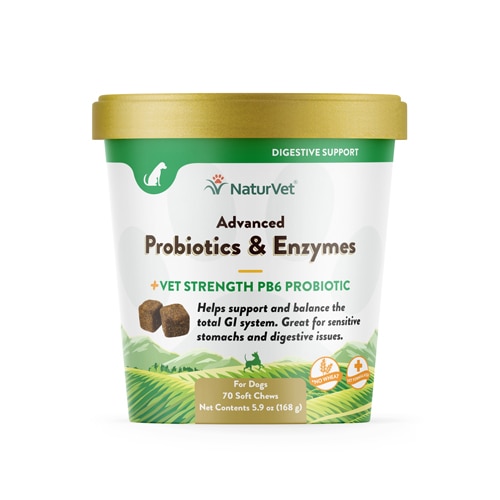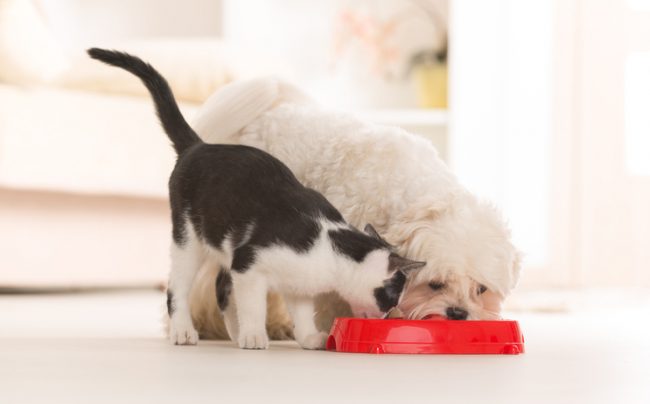Just like people, animals' overall health is connected to digestive health. Not only does your pet's healthy digestion affect the absorption of vitamins and minerals from the foods they eat, but it's also paramount for healthy-functioning immune system. Luckily, there are a few simple steps you can take to help your fur baby achieve optimal digetion, for everyday comfort, happiness and a long, healthy life!
1. Feed them appropriate foods
Pets are more than just furry companions; they're a part of the family. But that doesn’t mean they should be eating what we are serving at the dinner table. In fact, giving your pet frequent “treats” of table scraps can actually be harmful to their health.
One of the most common digestive problems in pets is a condition called pancreatitis. This is an inflammation of the pancreas which is cause most often by excessive fat in your dog or cat’s diet. Symptoms include repeated vomiting, diarrhea, a hunched back, lethargy, abdominal distention and fever. This is a very serious condition that requires immediate medical attention as it can be life threatening.
So, regardless of how adorable your cat looks drinking a bowl of cream or how crazy your dog gets for a bite of bacon, it’s best to stick to foods and treats that are specifically formulated for dogs or cats.
2. Try a probiotic supplement
It’s true, just like us, our dogs and cats can benefit from the regular addition of probiotics to their diet. Dr. Natalie Barrett, Doctor of Veterinary Medicine in Moorpark, California, is a strong proponent of probiotics for dogs and cats.
“Probiotics have been researched and proven to promote the health of the intestinal tract, which can be helpful in a variety of conditions for dogs and cats,” she explains. Probiotics can be beneficial to keep a pet’s digestion efficient and regular, which, in turn, helps to promote overall health and wellness.
But not all supplements are created the same, and don’t just go sharing your probiotics with your pet, because that can lead to big problems. Dr. Barrett stresses, “It is very important to use supplements, especially probiotics, that have been researched and proven to be effective. It is crucial to consult with your veterinarian on what the best type would be for each individual pet.”
3. Watch for viruses or bacteria
Many animals can be exposed to and contract viruses and bacteria that can make them very ill and can possibly be fatal. Parvovirus is a common, highly contagious, intestinal virus that has a high rate of fatality, especially in puppies. Coronavirus is another which is common as well. There are even certain bacterial infections such as salmonella and e.coli, which can be passed between pets and humans, or vice versa.
If your pet has a healthy digestive system, it can aid not only in you recognizing the symptoms, as vomiting, diarrhea, and lethargy will be noticeable changes in their health and behavior, but can healthy digestion can also be instrumental in their ability to battle and recover from such illnesses.
Prevent and treat parasites
Parasites are a particularly disruptive, as well as gross, ailment that can be miserable for both you and your pet. Though there are various types, you will mostly come across them as worms in your pet’s stool. These are transmitted by exposure to the feces of other dogs or cats or ingestion of an infected flea (which is why it is also important to make sure to take action to protect your dog or cat from fleas by regularly treating with a topical anti-flea medication or consistently applying with all-natural preventative sprays).
Parasites are typically treated with an over the counter deworming medication or a prescription from your veterinarian. If your pet has a healthy digestive system, this will help in the treatment and eradication of these disgusting and uncomfortable parasites.




